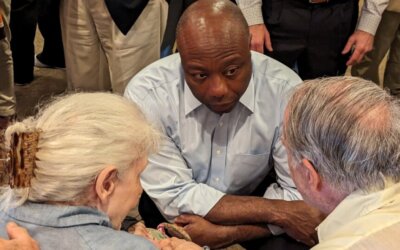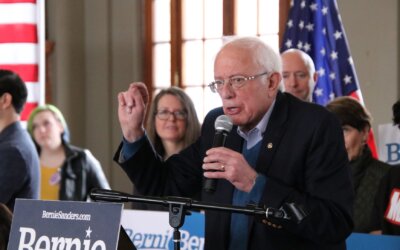
After this past week’s jam-packed Iowa Caucus weekend, we’re starting to get a new sense of where things stand in the lead-off state.
Campaigns demonstrated their organizing strength outside the Hall of Fame event, a new Des Moines Register poll got the chattering class chattering, and candidates tested their message in front of their largest audience yet.
And there does seem to be some movement going on. The Register’s poll kicked off a round of stories of who’s up and who’s down here, but I’d like to take a few moments and theorize on why those changes may have come about based on what I’ve seen on the ground.
First, let’s recap the two most recent Iowa surveys: the Register poll (released on June 8) and our earlier Starting Line/Change Research poll (released May 20).
Des Moines Register/Mediacom/CNN:
Joe Biden – 24%
Bernie Sanders – 16%
Elizabeth Warren – 15%
Pete Buttigieg – 14%
Kamala Harris – 7%
Amy Klobuchar – 2%
Beto O’Rourke – 2%
(All else 1% or less)
And the Starting Line/Change Research poll:
Joe Biden – 24%
Bernie Sanders – 24%
Pete Buttigieg – 14%
Elizabeth Warren – 12%
Kamala Harris – 10%
Beto O’Rourke – 5%
Amy Klobuchar – 2%
Andrew Yang – 2%
(All else 1% or less)
Elizabeth Warren
If you forced me to predict right now who I think will eventually go on to win the nomination, I’d say Elizabeth Warren.
Of course, my answer could be completely different in a month, but right now, it feels like Warren has all the underlying strengths and infrastructure in place to climb her way to the top by the time states start voting/caucusing. That seems slightly more likely, anyway, than Biden or Sanders maintaining their leads.
Warren’s fortunes have been on the upswing as she’s moved further and further away from earlier missteps and controversies. The mishandled DNA test from way back in last October, as well as her January launch that was sidetracked by the dumb “likability” debate that unnerved some Democratic voters, have slowly faded from memory.
Now the overwhelming public perception of Warren is that she has plans – lots of them – for every progressive policy she hopes to implement in the White House. It’s become such a dominant talking point around her that it’s essentially become a meme, helpful in a year where there’s simply too many candidates for most voters to really read up on every one.
That’s put Warren into the situation where her real underlying strengths are moving her back up in the horserace polls. For example, in our Change Research poll, Warren had the highest favorability numbers, topped the field in excitement for her candidacy, and was in first of who caucus-goers saw as “smart,” “tough,” and “honest and ethical.” The only thing they seemed worried about was whether other voters would like her.
All of that positive momentum only takes one so far, but fortunately for Warren, she’s constructed a juggernaut of a field campaign in Iowa and visited here often. Her operation didn’t just ramp up fast, they had fifty people on staff long before all but a few campaigns were even hiring regional field directors. That gave Warren months of a head start on having local field organizers hold community meetings, personally ask people to join the campaign, and build for the many events that Warren herself has already held in Iowa (she’s been here 17 days this year).
Essentially, Warren is excelling on three different fronts: positive national buzz, frequent visits to Iowa, and a large ground game. As we’ll see with everyone else, other candidates only have one or two of those things working in their favor right now.
[inline-ad id=”0″]
Bernie Sanders
The Register poll was bad news for Sanders, and it does feel like he’s been slipping in the standings for a while now.
I will say this, though: although I am no expert on polling and don’t pretend to be, the one thing I do feel strongly enough about is that I’ve always felt most polling, especially phones-only polls, could easily understate Sanders’ real support. He brought in tens of thousands of new voters in 2016 and may very well do so again, including those who don’t get engaged until right at the end (thus missing some “will you caucus?” screening questions). His campaign says they already have over 24,000 Iowans signed up – more than enough for that alone to get a good percentage on caucus night.
Still, it feels like Sanders’ biggest problem is this: he has not yet figured out how to talk to the rest of the party.
Most people realize that Sanders’ virtual tie in the 2016 Iowa Caucus was thanks to a coalition of far-left activists, progressive voters, the outsider crowd who could just as easily support a Ron Paul candidate, and people who just didn’t like Hillary Clinton. Sanders was never expected to retain all or even most of that for his second run, but even holding half of his past support could be more than enough to prevail in a fractured field.
However, he’s not even getting that right now.
There is a difference in the Democratic Party/the left in general between far-left voters and progressive voters. Sanders’ core base is the far-left crowd. The broader progressive base contains a lot of mainstream Democrats who generally prefer the more left-leaning candidate in a primary.
At most of Sanders’ early events in Iowa, the focus seemed aimed at his core base. Pipeline and factory farm activists introduced Sanders at several stops I attended, and Sanders’ message still seemed phrased for the his most loyal supporters. It’s important to reactivate that base to get them volunteering, but many past Iowa primaries have shown the limits of a far-left candidacy.
That has always been Warren’s biggest strength: she is a very progressive candidate in her policy views that is still palatable to most of the rest of Democratic Party voters.
Joe Biden
The former vice president’s numbers were always going to come back down to earth, but he’s sitting at a rather precarious 24% in both polls at the moment. Even if he remains exactly there through to the caucus, it’s a low enough number for someone to leapfrog him.
And he’s not doing a lot right now to improve that standing in Iowa. Yes, he had a nice moment this week when he campaigned here opposite Trump, but that was only his second visit to the state. People can disagree over whether skipping the Hall of Fame event for a family commitment was a wise move, but his absence wouldn’t have generated as much angst had he already racked up more miles here. Part of that was because he got in later than most candidates, but then that’s why you don’t get in late.
All that being said, if Biden starts barnstorming the state after the State Fair or Labor Day, reconnects with his natural base, and impresses rank-and-file Democrats, we won’t even remember these little concerns in a few months’ time. Biden can still give a great speech, connect with the older voters that make up the bulk of the Iowa Caucus electorate, and maybe even turn out some folks who drifted away from the Democratic Party in past years.
We also haven’t really seen a major candidate make a big mistake yet. With this large a field, many of whom are desperate to break out, someone will. Any uncertainty like that could drive people back to Biden’s safer candidacy.
Pete Buttigieg
It was amusing to watch national news outlets blare out headlines of how Buttigieg was surging in Iowa based solely off the Register’s poll. In reality, Buttigieg’s surge happened back in mid-March, which a lot of polls caught at the time. It was just that the previous Register poll was taken right before that. See this Real Clear Politics data of Iowa Caucus polls:

Real Clear Politics Iowa Caucus polling summary
If anything, Buttigieg’s support leveled off in Iowa a month or two ago, with him settling in to a very respectable and strong 10% to 15% range. That’s a good place to be for a contender who was barely known at the start of the year, and his big fundraising push this quarter should keep him in contention for the duration. Unlike O’Rourke, Buttigieg’s bump was long-lasting and sustainable, which is a very tricky thing to pull off.
However, one has to wonder if Buttigieg failed to make the most of his moment in Iowa. It took an unacceptably long time for him to staff up here. It’s understandable for a lesser-known candidate to not have a full team in an early state two weeks after they blow up, but it took the better part of two months for them to get a real leadership team in place in Iowa. They still trail most other candidates in the size of their caucus operation.
And Buttigieg himself kept to the national TV circuit for an awfully long time, eschewing face time in early states like Iowa. He’s spent only seven days in Iowa since his breakout moment in March. That’s just not enough time to lock in many key activists intrigued and excited about his rise.
Fortunately for Buttigieg, his appeal and longterm momentum seem real and lasting, so there’s still time to build a foundation in Iowa ready to win or place high on caucus night.
Kamala Harris
In both polls, as well as in general conversations with Iowa Democrats, Harris has a lot of underlying interest and excitement from caucus-goers. Her combined favorability numbers in our poll were behind only Warren and Sanders. However, her polling seems to always be stuck in fourth or fifth place here, and if there’s been any movement lately, it’s been a slight decline.
It was an open question at one point whether Harris would actively compete in the Iowa Caucus or wait to break out in South Carolina. Their campaign has since gone all-in here, building out a sizable field team for the long haul. But Harris herself hasn’t traversed the state nearly as much as her competitors, making it difficult for her to capitalize on those positive feelings Iowa Democratic caucus-goers have for her. She does well in-person with Iowans, she just has to be here to do it.
This is another situation where as long as Harris starts spending a lot more time in Iowa later this year, these initial issues may soon be forgotten.
Beto O’Rourke
The most dramatic collapse in standing in the Register’s poll comes from O’Rourke. That likely resulted from the torrent of negative/snarky press he received after his initial kick-off.
Frankly, O’Rourke didn’t quite deserve the fawning, wall-to-wall cable news accolades during his campaign launch. But he also certainly didn’t deserve the over-the-top backlash that resulted from that coverage. O’Rourke has just kinda been doing his own thing during his campaign while the national media has whipped itself into a frenzy with itself over his candidacy.
The best thing O’Rourke has going for him is his time commitment to travel. He’s barnstormed the state in the first couple of months of the campaign, and both polls show he retains a lot of interest, even if he’s slipped in the horserace. As long as he’s still able to generate sizable crowds on the caucus trail (and so far he is), O’Rourke and his large Iowa Caucus team have a good shot at rebounding in the polls as time goes on.
The Rest
Plenty of other candidates are poised to break out in Iowa, they just haven’t done so yet. We’ll address that when they do.
by Pat Rynard
Photos by Julie Fleming
Posted 6/14/19
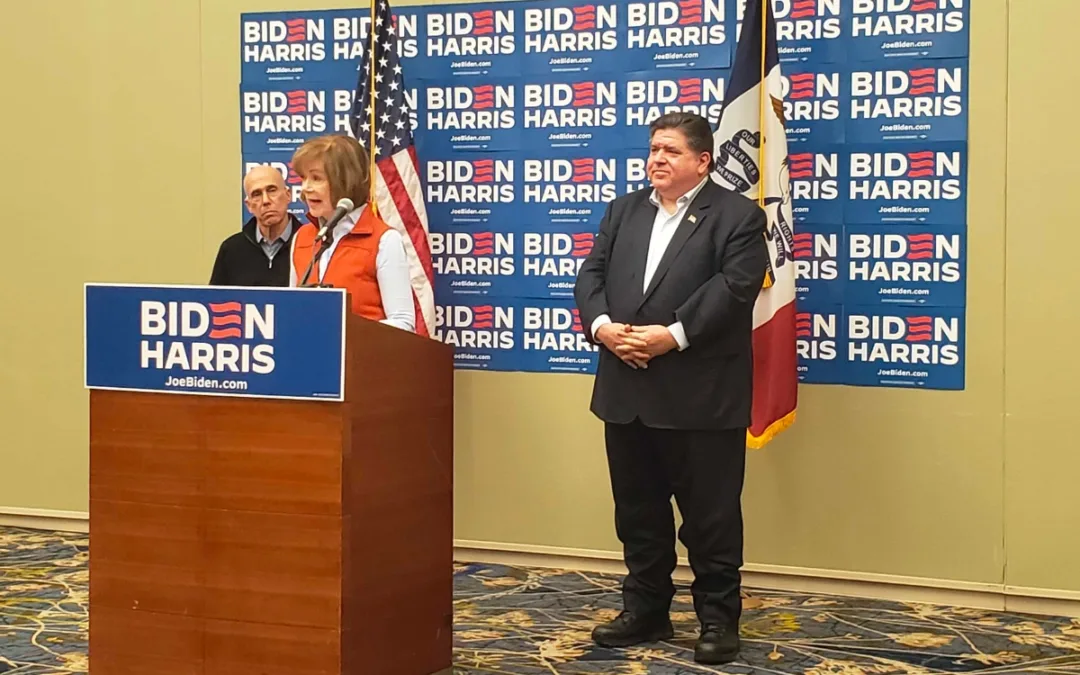
Original, heels or boots: Pritzker says leading Republicans are all MAGA
Illinois Gov. JB Pritzker said all three leading candidates in the Iowa GOP caucus—Donald Trump, Nikki Haley, and Ron DeSantis—represent the same...
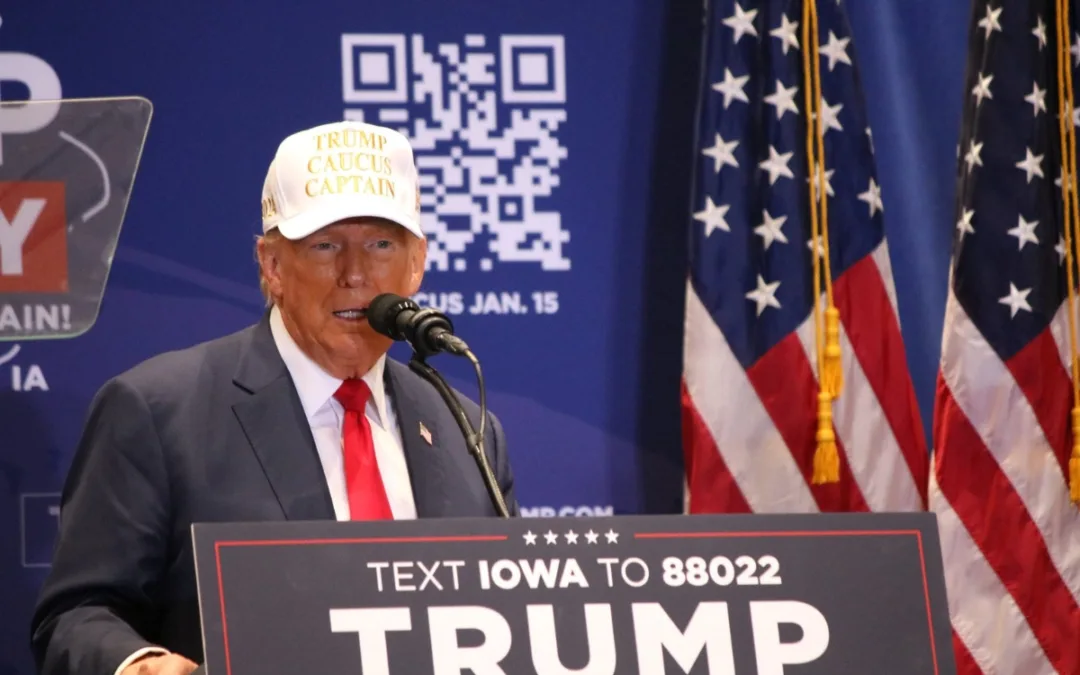
Trump tells supporters it is worth dying to caucus for him
Former President Donald Trump continues to encourage his massive base to turn out in droves for him during Monday’s Republican caucus and told an...

Climate change protesters disrupt Ron DeSantis event
Climate protesters disrupted a Gov. Ron DeSantis campaign event in Ames on Thursday night. Three protesters were escorted out of the room at...

Evangelical leaders predict huge caucus turnout, downplay endorsements
Iowa caucus candidates have racked up big-name endorsements—including a notable last-minute flip flop—but one evangelical leader said none of that...
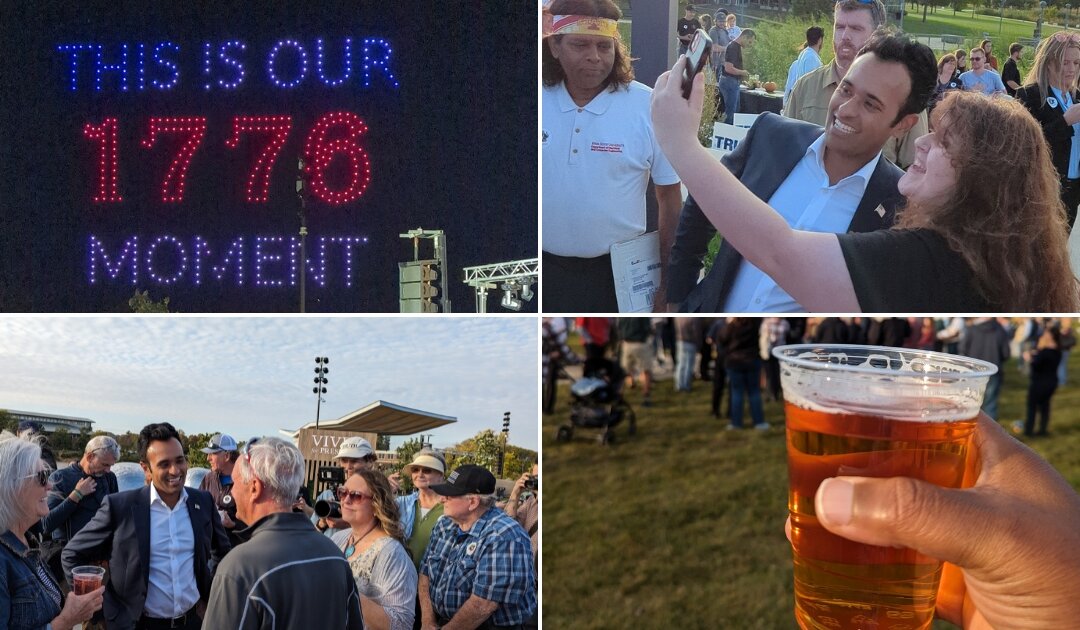
We went to Vivek Ramaswamy’s ‘Vektoberfest.’ Here’s what we saw
As I sat on a park bench eating a bacon-grilled cheese sandwich, drinking an Exile Ruthie straight from the tap, and chit-chatting with a few folks,...
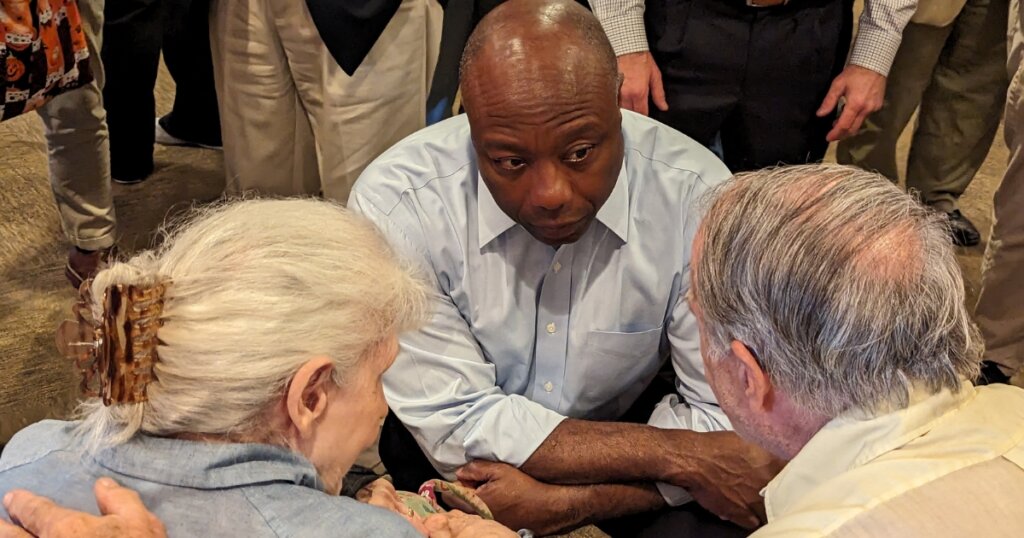
Tim Scott says kids need more exposure to conservatism
While many Republicans across the country have spent the last few years arguing that public schools are being used to indoctrinate kids into leftist...



